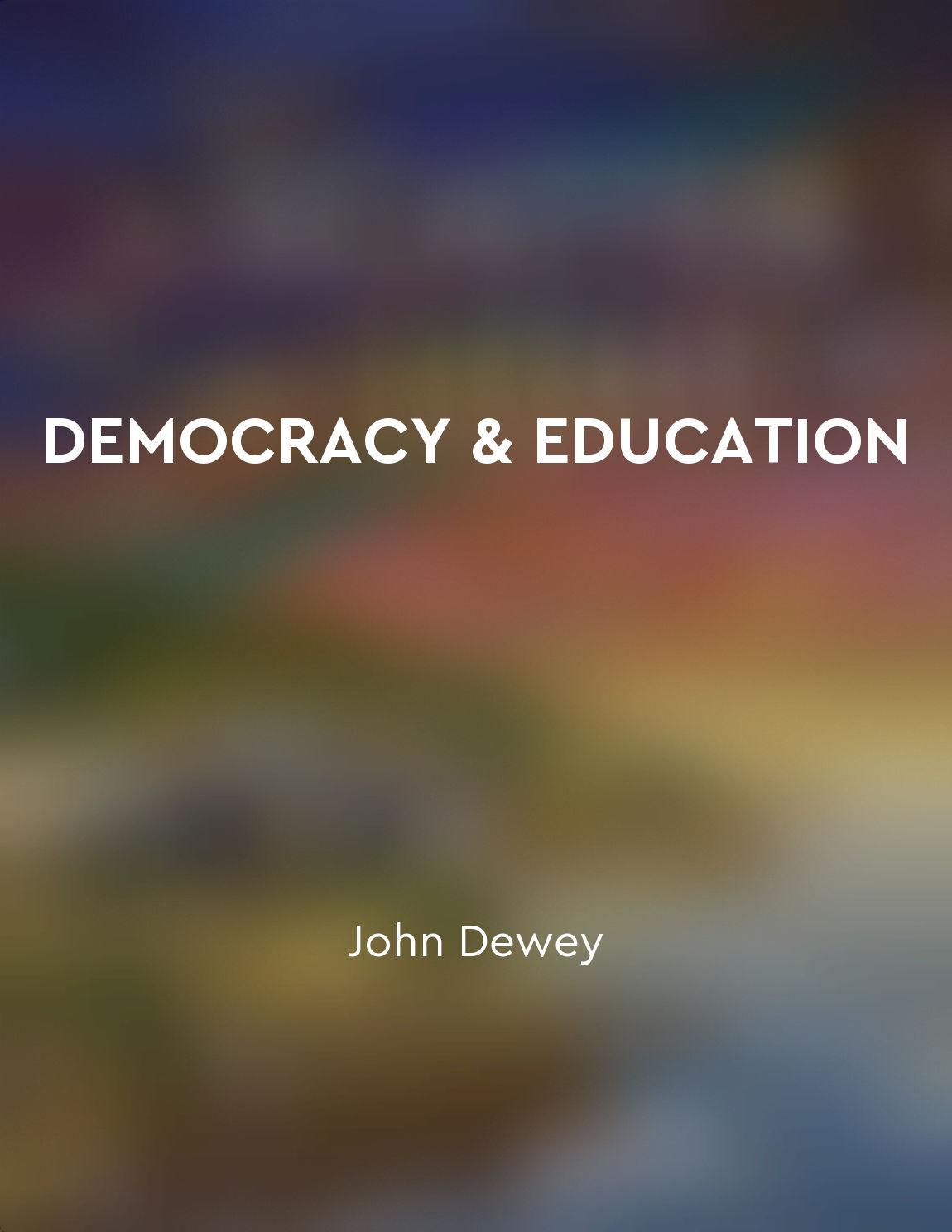Transformative nature of education from "summary" of The Student Guide to Freire's 'Pedagogy of the Oppressed' by Antonia Darder
Education is not merely about transmitting information from teacher to student; it is about transforming individuals and society as a whole. This transformative nature of education lies at the heart of Paulo Freire's Pedagogy of the Oppressed. Freire believed that education should not be a one-way process where the teacher deposits knowledge into the passive minds of students. Instead, he argued for a more interactive and participatory approach to learning, where students are actively engaged in the process of critical thinking and reflection. According to Freire, education should empower individuals to critically examine the world around them and to take action to change it for the better. This process of critical consciousness, or "conscientization," is essential for overcoming oppression and creating a more just and equitable society. Through dialogue and reflection, students can develop a deeper understanding of the social and political forces that shape their lives, and can work together to challenge and transform these oppressive structures. In order for education to be truly transformative, it must be rooted in the lived experiences of students. Freire believed that education should be a collaborative process where teachers and students learn from each other and co-create knowledge together. By drawing on the knowledge and insights of students, educators can make learning more relevant and meaningful, and can empower students to become active agents of change in their own lives and communities. Furthermore, Freire emphasized the importance of praxis, or the integration of theory and practice, in the educational process. Education should not be limited to the classroom; it should extend into the real world, where students can apply their learning to address concrete social problems and work towards social transformation. By linking learning to action, students can develop the skills and confidence to become critical thinkers and change-makers in their communities.- The transformative nature of education is central to Freire's vision of a more just and democratic society. By empowering individuals to critically analyze and challenge oppressive structures, education has the power to shape not only the minds of individuals, but also the course of history itself. Through dialogue, reflection, and action, education can become a force for liberation and social change, helping to create a world where all individuals can realize their full potential and live in dignity and freedom.
Similar Posts
Building on prior knowledge enhances learning
Our brains are not built to remember isolated facts. Instead, the brain is designed to remember things by connecting them to wh...

Listening is a form of activism
Listening is a form of activism. It is a radical act in a world that constantly tells us to speak up, to be heard, to make our ...

Resilience is born from adversity
In life, we are often faced with challenges and obstacles that can seem insurmountable. These adversities can come in many form...

Education should address social injustices
Education plays a crucial role in shaping individuals and society as a whole. It is not merely a means of acquiring knowledge a...
Education should be a transformative experience for students
The essence of education lies in its ability to transform students. It should not merely be about acquiring knowledge, but abou...

